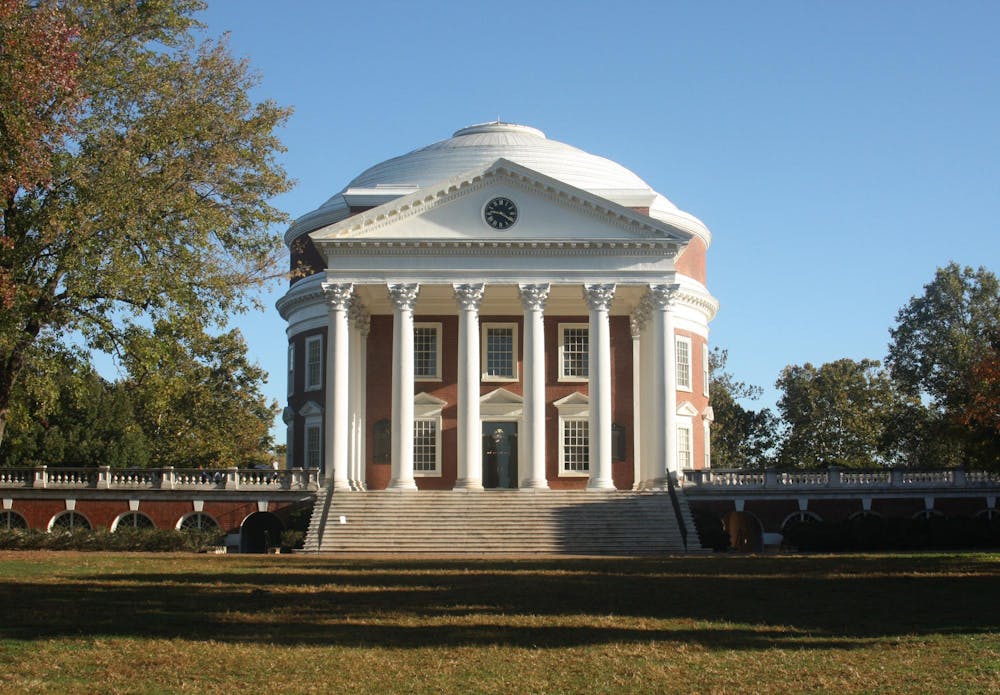In the midst of the apparent war that President Donald Trump is waging against higher education, the role of a university president has become increasingly embattled and complicated — do they resist the unprecedented attacks against higher education, and if yes, how? Responding to this question, 150 university presidents, including our own, publicly recognized the Trump administration’s threat to academic freedom and condemned the political interference of this administration.
Standing up for higher education’s autonomy in this manner perfectly embodies and defends the interests of students, faculty and numerous other stakeholders. The Cavalier Daily Editorial Board wholly commends President Jim Ryan for standing in solidarity with these other institutions and speaking out against government overreach and proposed censorship. We also hope that this letter is the first step in a series of initiatives which not only rhetorically opposes federal overreach, but also tangibly resists attempts at censorship.
As the statement establishes, the Trump administration has, since coming to power, attacked academia in a way which fundamentally compromises academic freedom. In recent weeks, the federal government cut billions of dollars in funding from a number of elite universities under the pretense of antisemitism. Moreover, many universities, including our own, have been instructed to abandon diversity, equity and inclusion efforts with the threat of otherwise losing federal funding. And funding is just one angle of Trump’s onslaught. Numerous students, living legally in the United States, have been detained by ICE and face potential deportation for what appears to be political reasons. Hundreds more international students and faculty — including at least one at the University — have had their visas revoked. In short, Trump has attacked the core of our nation’s academic sphere, using fear and uncertainty in an effort to bully universities into conformity and autocratic conservatism.
In signing onto this statement, President Ryan and other leaders thoroughly condemned the nature of “undue government intrusion” into the academic life of this University. The letter calls for constructive engagement with higher education, which is free from coercive financial mandates or fearful expression. In short, Ryan successfully recognized the threat that the University is under and decided to speak out — rather than continually acquiesce to inappropriate demands which fundamentally threaten the mission of a University and limit the advancement of knowledge.
What remains unclear to this Editorial Board, however, is how the University will tangibly commit to the principles and demands of the statement. The practical nature of this letter remains, at the point of writing this editorial, unclear because no actions beyond symbolic solidarity have been taken by the University. Certainly, the public announcement of a stance against the Trump administration signals a significant step for the University which should not be underrated in any way. Yet, what does such a statement mean in conversation with President Ryan’s silence for the past weeks — weeks of unprecedented changes at this University?
As the political climate shifts daily, University students have been largely left in the dark, which makes this statement categorically surprising. The University’s new “Federal Information” web page provides little more than brief, sanitized descriptions of how federal policies have impacted the University — distilling events as serious as student visa revocations into a few terse sentences. And numerous attempts by media sources to contact University leadership about federal threats, including that of the dissolution of the DEI office, have been ignored or redirected. University leaders have appeared outwardly terrified of offending the Trump administration and have refused to reveal what, if anything, they are tangibly doing to defend academic freedom. With this track record, this statement hopefully signals an important step to greater transparency in the future.
We hope for greater transparency because for the principles of solidarity in this statement to be enacted and effective, stakeholders must be treated as partners in resistance. For example, when Harvard University announced their decision to sue the Trump administration, its administration transparently faced the concerns of their student and faculty community. Harvard president Alan Garber hosted multiple town hall meetings which, although conflictual, placed community voices and administrative transparency as a top priority. In the wake of this admirable statement, it is imperative that President Ryan similarly renews focus on institutional transparency. Actions like the closure of the DEI office should be justified and explained in great detail. After all, only once students and faculty truly understand the motives of administrative actions can they effectively collaborate with University leadership on solutions to the community’s uncertainties.
One year ago, amid nationwide student protests about the Israel-Palestine conflict, the Editorial Board evaluated the role of university presidents in times of political conflict. The Editorial Board concluded that presidents should prioritize an environment of free and factually informed speech, rather than take a side in a conflict which does not have a clear and tangible connection to the operations of the University. The Editorial Board called this approach “critical neutrality.” Today, we believe that this same approach — albeit, applied to a vastly different political situation — necessitates a powerful stance against the Trump administration’s education policies.
With this most recent statement, President Ryan, alongside other university presidents, is successfully fighting back against the Trump administration’s aggression and protecting the fundamental principles for which this institution stands, principles which include academic freedom and the unimpeded pursuit of knowledge wherever it may lead. The next step is to bring in stakeholder voices and transform a principled, rhetorical stand into a tangible act of resistance.
The Cavalier Daily Editorial Board is composed of the Executive Editor, the Editor-in-Chief, the two Opinion Editors, a Senior Associate and an Opinion Columnist. The board can be reached at eb@cavalierdaily.com.







